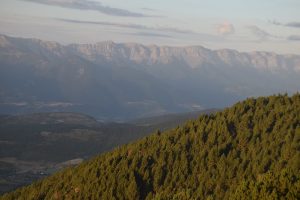
3 made in Spain fog collectors capable of collecting up to 250l of water per m2 per month are presented
In an increasingly arid world, every drop of water counts. And where is there any water left that we humans are not using? One of the most poetic places to look for them is within the fog, clouds of tiny droplets in suspension. This has been the driving force behind the LIFE Fogs project for the past four years.









